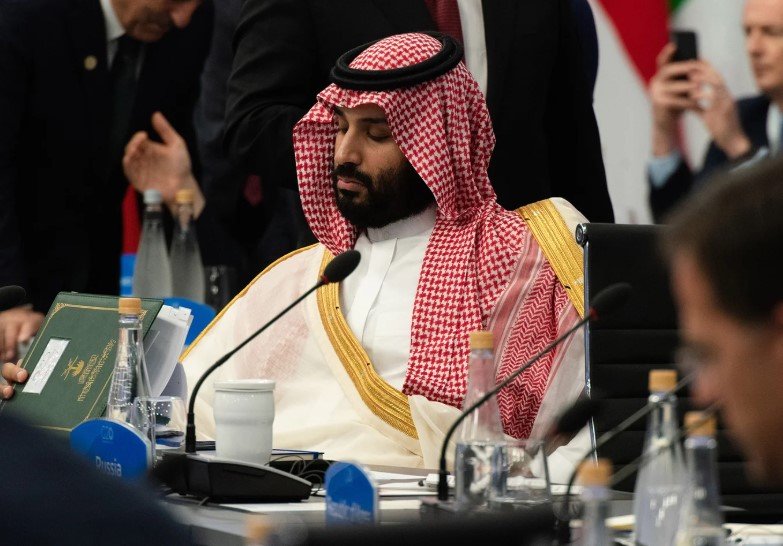Tensions in the Middle East are rising, and this week, two of the region’s most influential leaders met behind closed doors at Saudi Arabia’s futuristic city NEOM. Jordan’s King Abdullah II and Saudi Crown Prince Mohammed bin Salman gathered for what insiders say was a serious discussion on the unfolding crisis in Gaza and the wider implications for regional stability.
A Meeting Marked by Urgency
The arrival of King Abdullah II in Saudi Arabia on August 11 signaled the weight of the moment. Accompanied by Crown Prince Al Hussein bin Abdullah II, the Jordanian monarch was welcomed personally by Crown Prince Mohammed bin Salman at NEOM — the sprawling, high-tech city built to showcase Saudi Arabia’s Vision 2030 ambitions.
This was no casual catch-up. Sources close to the talks confirmed that the two leaders focused heavily on Israel’s ongoing military assaults on Gaza, describing the attacks as part of a broader plan to “fully occupy” the besieged enclave. Equally pressing was the discussion around intentions for the complete annexation of the West Bank, a move that could redraw borders and inflame tensions further.

The conversation took place against a backdrop of increasing international pressure to de-escalate violence and push for humanitarian aid access amid the worsening Gaza famine crisis. Jordan, sharing borders with both the West Bank and Gaza, has long been a critical voice in Palestinian affairs and a mediator in Arab-Israeli relations.
NEOM: A Symbolic Backdrop
NEOM itself is no ordinary venue. The Crown Prince’s flagship megacity in the northwestern corner of Saudi Arabia is envisioned as a beacon of innovation, sustainability, and economic diversification. But on this occasion, its ultramodern skyline stood silent witness to the gravity of geopolitical tensions.
Observers noted the symbolism: leaders meeting in a place designed to look toward the future, yet grappling with a conflict that has defined the region’s past and present. It’s a reminder that despite the shiny new ambitions, old wounds remain raw.
The Stakes: Gaza and the West Bank
According to officials briefed on the meeting, the leaders expressed deep concern about the humanitarian situation in Gaza, which has deteriorated sharply amid Israeli military operations. The blockade and repeated airstrikes have left civilians trapped, with essential services failing and food shortages looming.
The reported Israeli plans to annex the West Bank would represent a major shift in the decades-long status quo. Jordan, which has custodianship over Muslim and Christian holy sites in Jerusalem, fears the move could undermine any remaining prospects for a two-state solution.
King Abdullah’s government has called repeatedly for immediate global action to halt the famine and violence in Gaza. His visit to Germany earlier this month underscored this appeal to the international community. Now, at NEOM, he sought to align Saudi Arabia’s position with Jordan’s concerns, signaling a unified Arab front.
Regional Ramifications
The meeting highlights the increasingly interconnected nature of Middle Eastern politics. Saudi Arabia, with its growing regional clout and ties to Western powers, plays a key role in diplomatic efforts. Jordan remains a crucial bridge between the Palestinians and the broader Arab world.
Their joint discussions may pave the way for coordinated initiatives, whether through the Arab League or multilateral forums, aiming to pressure Israel into ceasing military operations and engaging in renewed peace talks.
But tensions run deep. Israeli officials view annexation as a security imperative, and hardline voices within Israel’s government resist external pressure. Meanwhile, Hamas and other factions in Gaza continue to respond with rocket fire and resistance, complicating the picture.
What Comes Next?
While no official communique has been released, insiders expect the Jordan-Saudi talks to continue shaping diplomatic outreach in the coming weeks. With the UN and international powers calling for ceasefires and humanitarian corridors, Arab leaders face the challenge of balancing public demands with realpolitik.
For King Abdullah, the meeting reaffirms his commitment to defending Palestinian rights and stabilizing the region. For Crown Prince Mohammed bin Salman, it’s another step in Saudi Arabia’s evolving role as a regional power broker, walking a tightrope between traditional alliances and new geopolitical realities.
As the dust settles in NEOM, eyes across the Middle East watch closely — hoping that dialogue, not bombs, will define the next chapter.
